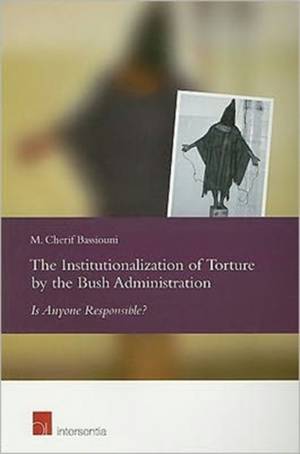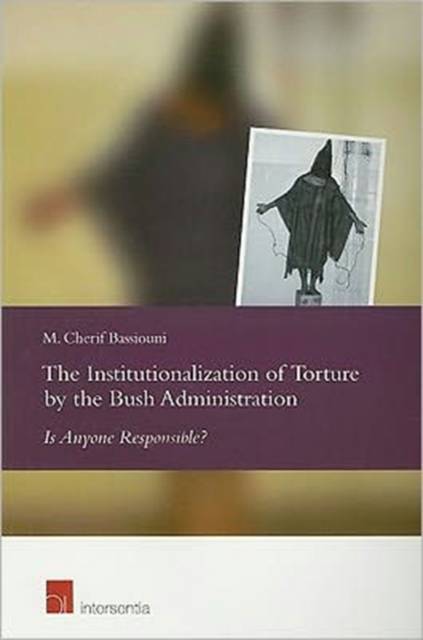
- Retrait gratuit dans votre magasin Club
- 7.000.000 titres dans notre catalogue
- Payer en toute sécurité
- Toujours un magasin près de chez vous
- Retrait gratuit dans votre magasin Club
- 7.000.0000 titres dans notre catalogue
- Payer en toute sécurité
- Toujours un magasin près de chez vous
The Institutionalization of Torture by the Bush Administration
Is Anyone Responsible?
M Cherif Bassiouni
Livre broché | Anglais
45,00 €
+ 90 points
Description
The United States has historically been regarded as a moral leader opening the pathway for human rights. The country which for so long has struggled for the establishment of the rule of law - as well as to be a model for other nations in observing it - has, since September11, 2001, committed abhorrent practices of torture, which the US has fought against when committed by others. What seems astonishing is that such practices took place within a climate of significant public indifference, and even with some public support. Time and again, observers of tragic historic events reveal that it is not so much the evil doing of the few which allows the worst atrocities to occur, as it is the indifference of the many. The Bush administration assumed neither moral nor legal responsibility, and in the end, it is hard-put to show what positive results may have been obtained for so many transgressions. The history of law and legal institutions has long proven the error of accepting the Machiavellian principle that "the ends justify the means." In addition, the proposition that torture prevents terrorism cannot be proven true. Under torture, people tend to say whatever is expected of them. However, this is not only about pragmatic pursuits. It is about morality and ethics. The judgement has already been made that torture is unlawful. In addition, the Guantanamo Bay practices and the unlawful seizure of persons in different parts of the world by the CIA - after which they are transferred to countries where they are tortured - have proven that hard evidence is highly unlikely to be attained under torture. Most of the detainees have been proven to have no connection to terrorism and most of them have been released because they were wrongly arrested. Guantanamo represents a failed policy that has done much damage to the moral authority of the US. Aberrant views of torture as necessary because "the ends justify the means" have not generated much negative reaction from the legal profession - despite the fact that the 1984 Convention against Torture, the Geneva Conventions, the US Constitution, and the laws of the US have clearly prohibited such practices. This book examines such questions as: Are the events of September 11, 2001 enough to have us reopen the question of whether the medieval practice of torture should be allowed? Are they enough to have its institutionalized practice undermine the integrity of the US legal process and system of law, and to undermine the country's moral leadership in the world? The answer to these questions has to be a resounding and unqualified "no." The US must, therefore, take quick and confident action to make amends and to hold responsible those who promoted a policy of torture. M. Cherif Bassiouni, in April 2012, received the Wolfgang Friedmann Memorial Award which is given by the Columbia Journal of Transnational Law to a distinguished scholar or practitioner who has made outstanding contributions to the field of international law. *** "...exquisitely detailed the way in which American governmental institutions bypassed international law in order to allow the creation of a policy that allowed torture. Bassiouni paints a striking portrait of the abuses and violations of international law by Bush's Administration, the way these actions strike at the heart of the American tradition, and the actions that must be taken to save America's collective conscience." - Prof. Karen Greenberg, Executive Director of the Center on Law and Security, NYU School of Law
Spécifications
Parties prenantes
- Auteur(s) :
- Editeur:
Contenu
- Nombre de pages :
- 301
- Langue:
- Anglais
Caractéristiques
- EAN:
- 9789400000056
- Date de parution :
- 13-12-10
- Format:
- Livre broché
- Format numérique:
- Trade paperback (VS)
- Dimensions :
- 161 mm x 240 mm
- Poids :
- 566 g

Les avis
Nous publions uniquement les avis qui respectent les conditions requises. Consultez nos conditions pour les avis.






